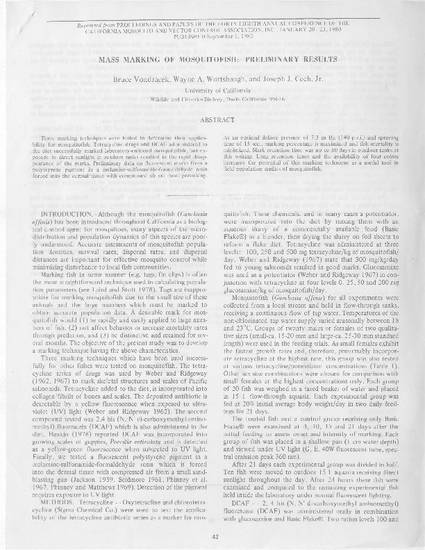
- fish,
- tagging,
- Gambusia,
- management,
- pigments,
- fluorescent,
- Tetracycline,
- mosquitofish,
- mosquito
Three marking techniques were tested to determine their applicability for mosquitofish. Tetracycline drugs and DC Ar administered in the diet successfully marked laboratory-cultured mosquitofish, but exposure to direct sunlight in outdoor tanks resulted in the rapid disappearance of the marks. Preliminary data on fluorescent marks from a polystyrene pigment in a melamine-sulfonamide-formaldehyde resin forced into the dermal ,tissue with compressed air are more promising.
A t an optimal deliver pressure of 7.3 m Hg (140 p.s.i.) and spraying time of 15 sec., marking percentage is maximized and fish mortality is minimized. Mark retention time was up to 80 days in outdoor tanks at this writing, Long retention times and the availability of four colors increases the potential of this marking technique as a useful tool in field population studies of mosquito fish.
Available at: http://works.bepress.com/wayne_wurtsbaugh/121/

This work made publicly available electronically on July 16, 2012.